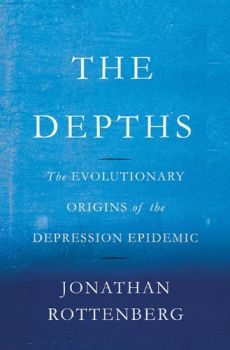
Depression
Why We Can't Stop the Depression Epidemic
Our reactions to Robin Williams's suicide explain a larger national failure.
Posted September 16, 2014
Comedian Robin Williams’s death in August rocketed depression into the headlines, and his suicide became a defining moment when the nation would finally reckon with depression.
But this reckoning never happened.
At first, most everyone had something to say about Williams’s death. Much of the reaction was intensely personal. The sudden loss of a beloved entertainer to a mental-health struggle spurred the famous and the not-so-famous to reveal their own experience of depression, their own brushes with suicide, often for the first time. Heartfelt, lovely, overtly confessional editorials and blog posts issued forth. Individual stories of suffering (and redemption) became part of the collective consciousness of the event.
Williams’s death also aroused discomfort and confusion. People hungered for an answer to the question: why did he kill himself? The search for answer veered toward the very personal. Sometimes it felt like a feeding frenzy to find one man’s fatal flaw. Talking heads on Fox and CNN voiced psychiatric orthodoxy, referencing Williams’s “serious brain illness” or “genetic disease.” Other commentators seemed intent on blaming Williams’s death on vague and unnamable psychological forces referred to as “demons.” As time went on, most of the coverage filled in biographical details to explain his death: financial troubles, a career on the rocks, a recent Parkinson’s diagnosis. As these details filled in, it was striking how quickly people shifted their stance from “I can’t believe it” to “of course.”
In retrospect, the death of Robin Williams did not renew our dialogue about depression. It was not only that much what was said was clichés: “What a tragic loss,” “he suffered from a disease over which he was helpless,” “if only he had gotten the right treatment his life might have been saved.” It was that most of what was said was personalized, reactions and reflections upon individual lives. Although his death set the stage for a larger, deeper, wider analysis of depression in America, this analysis never happened.
Such an analysis was, and is, badly needed. Because on that that August day--as on every day in America-- more than 100 people died by suicide and 2,500 attempted suicide. For all the wall-to-wall coverage of Robin Williams, there was no serious attempt to explain why the suicide rate for adults has increased 25% since 1999. No serious new proposals were launched to address the problem of depression.
And the national conversation about depression slowly sunk back into its previous moribund state.
*************************************************************
Everyone knows, on some level, that depression is an important societal problem. Yet we have trouble connecting the dots. Best estimates are that about thirty-five million American adults will struggle with depression, nearly one in five people. Surely, someone you know is affected, whether it’s your teacher, your neighbor, your doctor, your friend. We tend to think of each person as struggling with unique problems. But focusing on the individual dots becomes a dangerous habit of mind when there are so many of them.
In fact, I don’t think it’s hyperbole to say that we’re the midst of a depression epidemic. Here are some reasons why such a strong term is warranted:
• Public health authorities recognize depression as a looming danger. According to oft-cited projections from the World Health Organization, the amount of disability and life lost due to depression will, by 2030, surpass than that from war, accidents, cancer, stroke, and heart disease. For boys and girls worldwide, depression is already the number one cause of illness and disability according to the WHO.
• According to our best epidemiological studies, depression is striking people at younger and younger ages. For example, the National Comorbidity study found that 18 to 29 year olds were already more likely to experience depression than those sixty and older, even though they have been alive for less than half as long!
• Indeed, the situation on America’s college campuses is particularly troubling. According to the Association for University and College Counseling Center Directors survey of counseling center directors, 95% of college counseling center directors report they are seeing a growing number of students with significant psychological problems at their center. A 2013 survey of college students found that 33% of women and 27% of men reported a period in the last year of feeling so depressed it was difficult to function.
• Antidepressant medication use has skyrocketed. According to the Center for Disease Control, antidepressant use has increased 400 percent since 1988. Eleven percent of Americans over the age of twelve takes an antidepressant. In the United Kingdom, so many people are taking Prozac that scientists are concerned that active metabolites in human urine are running off into water and are now affecting the behavior of wildlife.
One paradox about depression is that its personal and economic toll has actually grown just as more research and treatment resources have been poured into combating it. How can it be that, despite all the efforts aimed at understanding, treating, and educating the public about this condition, that rates of depression continue to rise? Why have our treatments plateaued in their effectiveness, and why does the stigma associated with this condition remain very much with us? Psychiatrist and New York Times columnist Richard A. Friedman recently wrote, “Of all the major illnesses, mental or physical, depression has been one of the toughest to subdue.”
Our highly personalized reaction to Robin Williams’s suicide, and our inability to sustain a national conversation about the depression epidemic after his death, provide important clues about why we've made so little progress in addressing this problem.
*****
Jonathan Rottenberg is the author of The Depths: The Evolutionary Origins of the Depression Epidemic. Follow Jon on Twitter.




